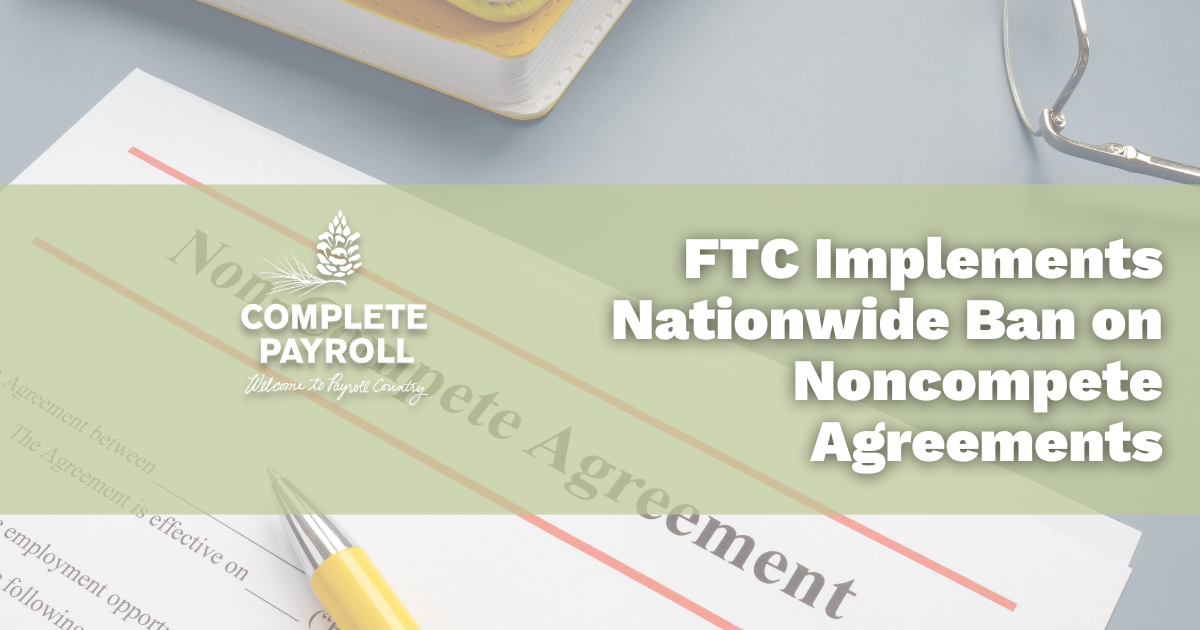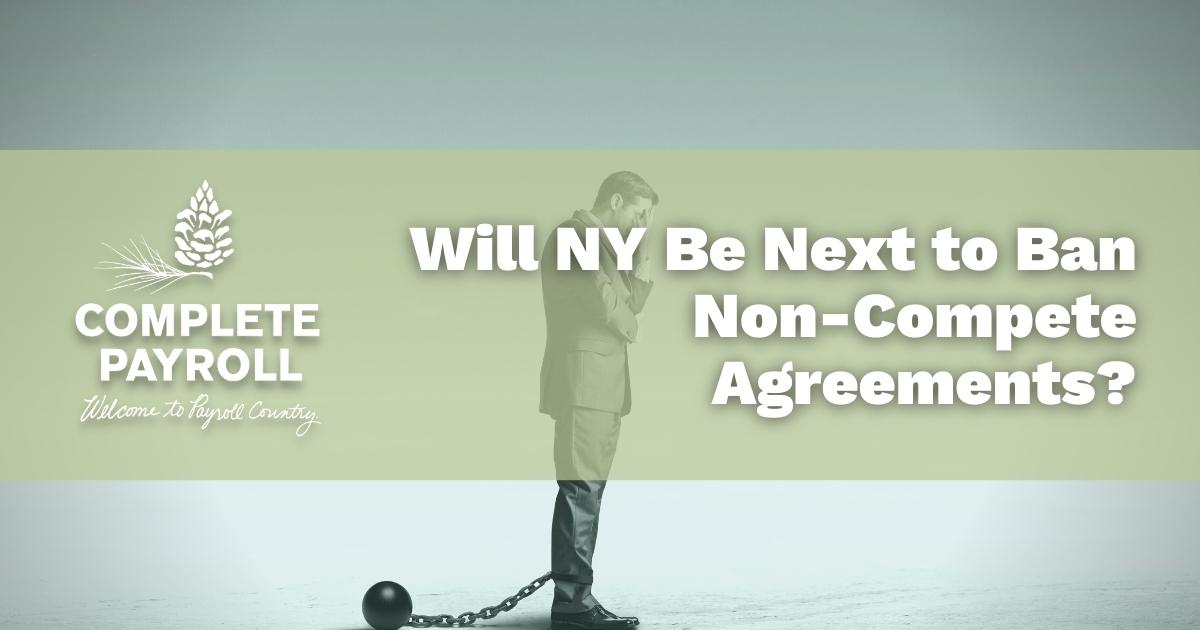Federal Judge Strikes Down FTC Non-compete Ban: What Does This Mean for Employers?

Written by Complete Payroll

Employers around the country most likely have heard of the Federal Trade Commission's (FTC) announcement in April 2024 of their intended nationwide non-compete ban. This ban was scheduled to take effect on September 4, 2024.
The proposed ban was based on the premise that non-compete clauses are unfair competition as well as a hindrance to the economy and wages. To learn more about the FTC’s initial ruling on the proposed non-compete ban, read our article “FTC Implements Nationwide Ban on Non-compete Agreements”.
However, Judge Ada E. Brown and the U.S. District Court for the Northern District of Texas blocked the FTC’s proposed non-compete ban on August 20, 2024, and as a result, the non-compete ruling ban will not be enforced on September 4th, like originally proposed.
Court Decision On The Federal Non-Compete Rule
On August 20, 2024, Federal Texas Judge Ada E. Brown found the ruling to be unlawful and blocked the FTC’s proposed federal non-compete rule for a few reasons.
The key reasons for the block are as follows:
- Lack of authority. According to the court, the FTC did not have the authority to issue a ban on non-compete agreements since the ruling exceeded its statutory authority.
- Too broad. The court viewed this ruling as too broad with an insufficient explanation behind it. The judge felt that the FTC’s ban failed to explore less restrictive options and was far too all-encompassing.
- Non-competes can be positive. Moreover, the court felt that certain non-compete agreements can help protect businesses when applied appropriately.
Judge Brown concluded that “the commission’s lack of evidence as to why they chose to impose such a sweeping prohibition... instead of targeting specific, harmful noncompetes, renders the rule arbitrary and capricious.” Therefore, this ban will not take effect on September 4, 2024.
Reactions to the FTC Non-Compete Ban Block
Businesses, industries, and organizations have had mixed reactions to the decision to block the non-compete ban. While some favor the ban, others fully support non-compete agreements.
For example, Emily Dickenson, the chief of staff and head of government affairs at the Society for Human Resource Management (SHRM), stated that they have been “advocating for balanced business practices that protect both workers and employers.” Additionally, Dickenson also stated that “the court’s decision affirms our position—like SHRM, the judge recognized that the FTC’s sweeping ban failed to explore less restrictive alternatives and ignored the positive impact noncompete agreements can have when applied appropriately.”
However, the FTC's proposal to ban non-compete agreements proved to be exciting for certain industries, including the physician community. This proposed ban gave hope to physicians bound by non-compete clauses, with a third to a half being restricted by such clauses. This ban would have allowed them to be free from legal constraints to pursue better opportunities.
Implications for Employers
The FTC's proposed federal non-compete rule prohibited employers from forcing their employees to sign non-compete agreements and required employers to notify current employees of the dissolution and invalidity of their current non-compete agreements, with very few exceptions.
However, with the federal judge striking down the FTC non-compete ban, there is no change for employers, and employers can hold off preparing to comply with the ban. With this ruling, employers have clear expectations for enforcing non-compete bans and are assured that their intelligence information will be protected.
Yet, employers should remain vigilant and up-to-date on this ruling, as there's a possibility of the FTC appealing this decision. To ensure compliance and best practices, employers should review their state's non-compete laws, regulations, and rules.
FTC’s Response to Texas Non-Compete Ruling
FTC spokesperson Victoria Graham said they were disappointed with Judge Brown’s ruling and were “seriously considering a potential appeal.” In addition, they also stated that while the FTC’s nationwide non-compete ban was blocked, the Federal Trade Center is not prevented from enforcing non-compete agreements on a case-by-case basis.
The FTC’s non-compete ban was proposed on the premise that it would boost competition, increase innovation, raise wages, and aid countless new businesses in forming every year.
As a result of their proposal being blocked, Victoria Graham stated, "We are disappointed by Judge Brown's decision and will keep fighting to stop non-competes that restrict the economic liberty of hard-working Americans, hamper economic growth, limit innovation, and depress wages.”
Conclusion
In conclusion, Federal Judge Ada E. Brown blocked the FTC’s nationwide ban on non-competes under the basis that the FTC lacked the authority to make such a ban, that it was far too broad with not enough reason behind it, and that certain non-competes have a positive impact. Therefore, employers across the nation are free to continue requiring non-compete agreements for current and future employees after the Texas non-compete ruling.
The FTC non-compete ban will not take effect on September 4, 2024, as originally proposed. Yet in spite of this, employers should still remain vigilant, as the FTC may appeal this decision and enforce non-competes on a case-by-case basis. In addition, business owners should ensure compliance with state non-compete laws.
It’s essential for employers to stay updated on legal changes that could impact your business. Subscribe to Complete Payroll's newsletter for the latest news on employment laws and regulations.















 Get Instant Blog Notifications
Get Instant Blog Notifications

